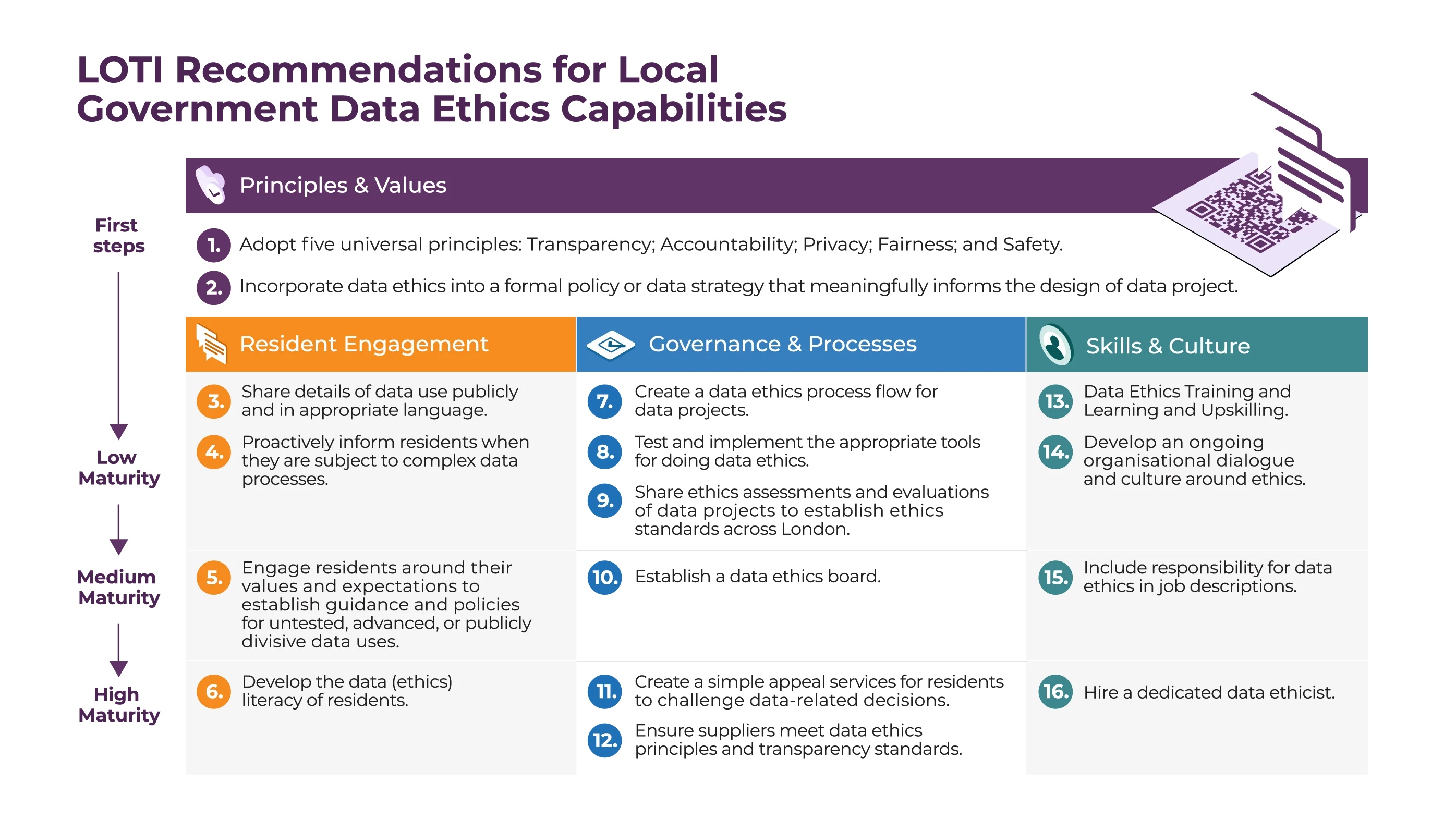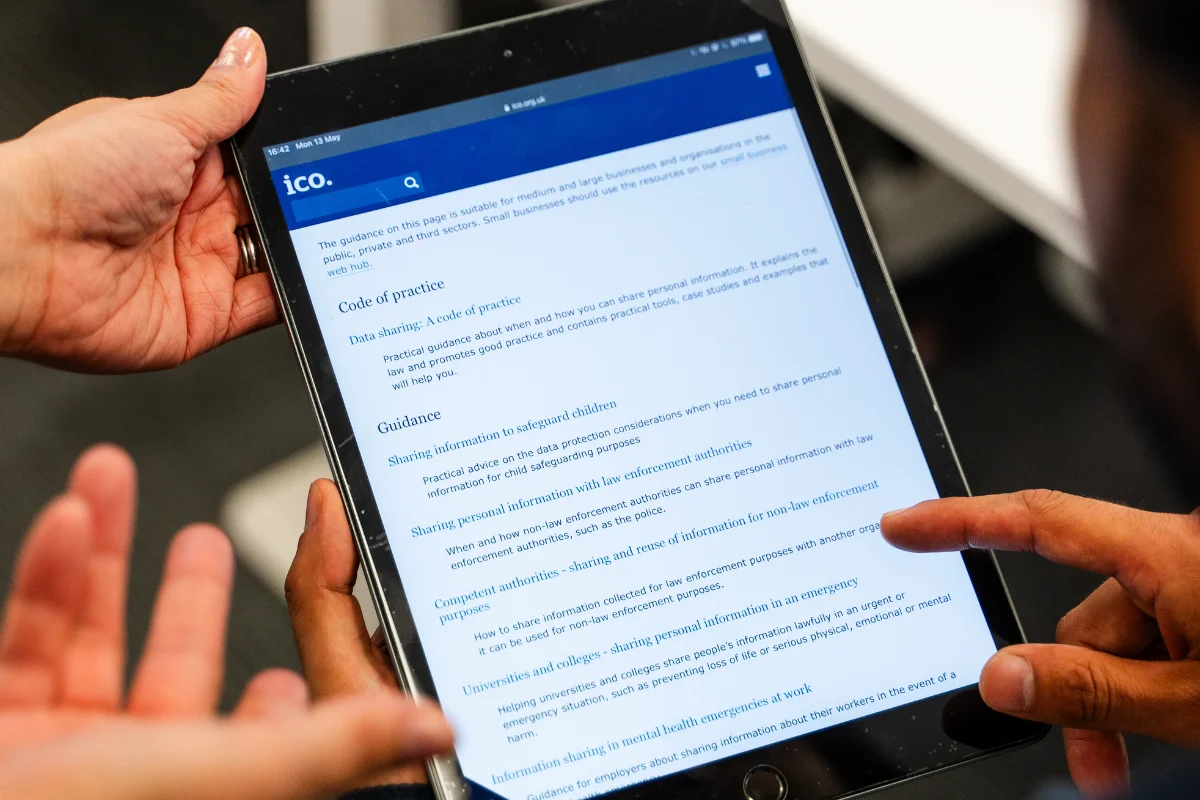
Councils need to be able to collect, share, analyse and innovate with data and AI in a way is ethical and morally responsible. To help guide councils in how they develop their own ethics capabilities, LOTI has produced a Data Ethics and Responsible AI Capabilities Framework
This framework contextualises resources and guidance produced by different organisations to help local authorities in the UK specifically identify practical steps that they can take to be more ethical and responsible users of data and AI. This framework was last updated in December 2024.
LOTI is offering support to any LOTI Member interested in piloting any of these recommendations as part of our London Data Ethics Service. Please find more information on the dedicated Resource Page, or contact LOTI Data Ethicist, Sam Nutt, at sam.nutt@loti.london.

Share details of data use publicly and in appropriate languageProactively inform residents when they are subject to complex data processes (e.g. automated decisions, AI-powered robots, surveillance technologies)Engage residents around their values and expectations to establish guidance and policies for untested, advanced, or publicly divisive data usesDevelop the data (ethics) literacy of residents
Create a data ethics process flow for data projectsTest and implement the appropriate tools for doing data ethicsShare ethics assessments and evaluations of data projects to establish common ethics standards across LondonEstablish a data ethics boardCreate simple appeal and recourse mechanisms for residents to challenge data-related decisionsEnsure suppliers meet data ethics principles and transparency standards

LOTI suggests adopting moral principles that will guide data and AI practices, based on popular national frameworks and local organisational and resident values.

LOTI recommends councils incorporate ethical principles into a corporate data strategy and an AI policy for staff.

LOTI recommends that local authorities follow the communication principles set out in the UK Algorithmic Transparency Standard.

LOTI recommends that councils proactively communicate with residents about how decisions are being made with data.

LOTI recommends involving residents in data use deliberations and consultations.

LOTI recommends that information governance (IG) officers, data officers and resident engagement and communication officers develop public campaigns around data.

LOTI recommends creating a data ethics process flow for data projects.

At the conception and design stage of a project, LOTI recommends using the Open Data Institute’s Data Ethics Canvas or the UK Government Digital Service’s Data Ethics Framework.

LOTI recommends that councils publish any assessments or evaluations of data projects so that other boroughs can see how they have evaluated and mitigated certain risks.

A data ethics board can be a powerful governance tool for an organisation as it advises and shapes individual projects and policies based on ethical principles.

LOTI recommends that, in the design stage of any new data project, data teams consider whether residents will need the right to appeal and recourse.

When procuring technologies or services, boroughs should not only look for the most efficient supplier but also assess which companies or technologies are the most ethical.

LOTI outlines a range of skills that are important in data ethics and suggests courses to help upskill staff.

Organisations should foster data ethics skills in their staff and create an environment where people feel comfortable raising issues around ethics.

LOTI recommends including data ethics as a responsibility or task in the job description for all new data jobs.

A data ethicist can lead an organisation’s work on data ethics, providing research expertise on data ethics and raising awareness and space for discussions of ethical issues.